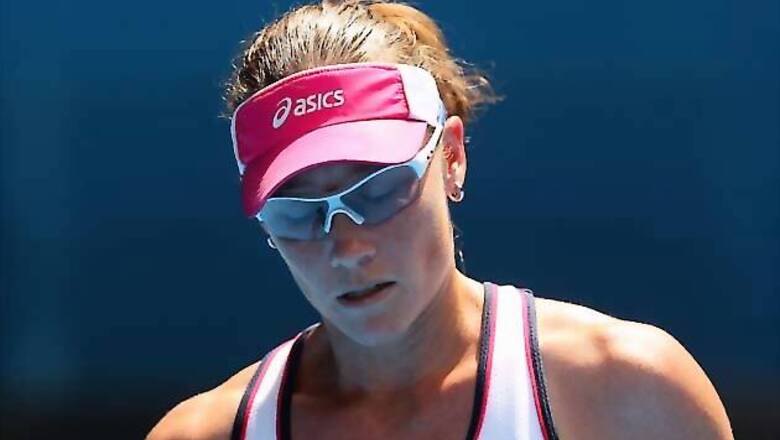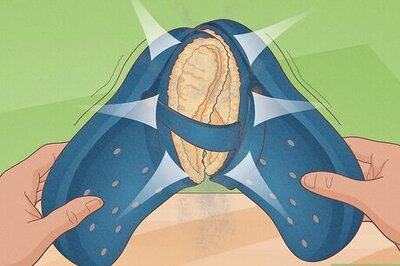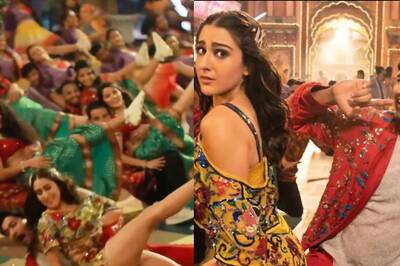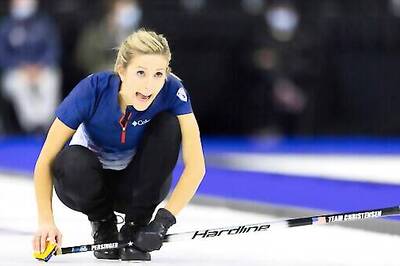
views
Melbourne: Coming into the Australian Open as a Grand Slam winner ought to have lifted the pressure from Sam Stosur. Instead, it seemed to double it.
The reigning US Open champion crashed out in the first round, beaten 7-6 (2), 6-3 by Sorana Cirstea in front of her home crowd at Rod Laver Arena on Tuesday. Her bid to end a 34-year drought for Australian women at the Australian Open was in tatters on just the second day of the tournament.
As she spoke to the media afterward, her eyes appeared red and slightly swollen.
"I'm probably very close to crying, having a really awful night," Stosur said. "It's hard to suppress those emotions when it means so much to you."
The sixth-seeded Stosur has never got past the fourth round at the Australian Open, the weight of expectation apparently too much to bear. In 10 trips to Melbourne Park, Stosur has lost in the first round three times - the last time in 2005.
The defeat wasn't entirely surprising. She also lost early at two tune-up tournaments, and after going out in the first round at the Sydney International, she admitted she was struggling to cope with the pressure.
"The whole emotional side of things really took over," the 27-year-old Stosur said. "It never felt like I was able to be loose and free with the way I wanted to play."
Stosur has been working with a psychologist from the Australian Institute of Sport since last April to try to overcome the stress she sometimes feels on the court. It helped her rediscover her form after falling flat in the 2010 French Open final against Francesca Schiavone.
Against 13-time Grand Slam winner Serena Williams in the US Open final last September, Stosur stayed remarkably calm in a commanding 6-2, 6-3 win. It was Williams who lost her cool in front of a home crowd; Stosur remained composed long enough to become the first Australian women since Evonne Goolagong Cawley at Wimbledon in 1980 to win a Grand Slam singles title.
Against No. 59-ranked Cirstea on Tuesday, however, Stosur could hardly keep the ball in court, spraying 33 unforced errors.
"I think for sure it affects you physically," the 27-year-old Stosur said of her nerves. "I think it is easy to see that you tighten up, your shoulders do get tight, you don't hit through the ball."
"When anyone's nervous, I think the first thing that goes is your footwork. You don't move your feet as well. Once that breaks down, it's easy for other things to start breaking down."
Cirstea was all too aware of the baggage Stosur was carrying.
"She had the pressure. I had nothing to lose," Cirstea said. "Sam, she's a great player. She just won the US Open. She had a lot of pressure on her shoulders coming out today. I just tried to play my best."
No Australian woman had won the title since Chris O'Neil in 1978. Hana Mandlikova won the Australian Open in 1980 and 1987 while competing as a Czech, but didn't go past the quarter-finals after becoming a naturalized Australian in 1988.
The men's drought is longer, dating back to Mark Edmondson's win in 1976 — Pat Cash, Pat Rafter and Lleyton Hewitt could win Majors elsewhere, but not at home. Cash was quoted in the local media on the morning of Stosur's match, sympathizing with her struggles.
"It gets really tough for us here," he said. "The problem is so many people want a piece of you during the Australian Open. It's got to Lleyton Hewitt over the years, it encumbered Pat Rafter who never played anything like as well as he did at the US Open, or even Wimbledon, and it's not really helping Sam."
Stosur's exit maintains a trend in women's tennis. The last four Grand Slam champions have all lost early at their next Major tournament. Kim Clijsters won the Australian title last year, only four months after winning the US Open. But then she lost in the second round at the French Open and didn't contest Wimbledon or defend her U.S crown. French Open finalist Li Na went out in the second round at Wimbledon and in the first round in New York. Wimbledon champion Petra Kvitova lost in the first round at Flushing Meadows.
"Part of it is just that heightened expectation of wanting to do well, all that kind of thing," Stosur said. "I struggled the couple weeks after the US Open and then finished well at the (year-end) Championships, had a month off, then trained for a month."
"I don't know why it seems to be happening more often than not right now. I'm sure if we could all change the way we've responded straight after winning a Grand Slam, we would have."
Stosur plans to take a few days off "to get away" before she focuses on the rest of the season, at least in the knowledge that it can only get better.




















Comments
0 comment